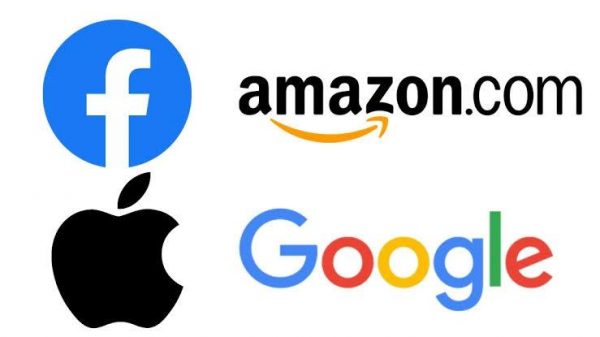
Senators Elizabeth Warren and Lindsey Graham have proposed a groundbreaking legislation that would require tech giants such as Google, Amazon and Meta to be regulated by a new federal agency.
The bipartisan Digital Consumer Protection Commission Act was unveiled on Thursday, and it seeks to tackle some of the long-standing issues in the tech industry including dominance, data privacy, and social harms such as cyberbullying, reported CNN.
“For too long, giant tech companies have exploited consumers’ data, invaded Americans’ privacy, threatened our national security, and stomped out competition in our economy,” Warren said. “This bipartisan bill would create a new tech regulator and it makes clear that reining in Big Tech platforms is a top priority on both sides of the aisle.”
Graham echoed Warren’s sentiment, saying “We all recognize that these powerful tech platforms have vast economic and political power and can be used to great effect. But the abuse of these platforms has become too common and too dangerous for the public. Enough is enough. It’s time to rein in Big Tech. We can’t do it with a law that only nibbles around the edges of the problem. Piecemeal efforts to stop abusive and dangerous practices have failed.”
Related: Big Tech Companies Make Voluntary Commitments to Regulate AI Industry
The legislation, which seeks to expand the existing authority of the Federal Trade Commission and the Justice Department, would also grant the new commission with oversight over how to respond to emerging risks, including from artificial intelligence (AI).
The new agency would investigate claims of wrongdoing, pursue enforcement actions against companies that violate consumer rights, issue licenses to platforms, and impose a ban on some practices including the use of non-compete agreements to stop employees from joining rival startup companies.
The bill has support from both sides of the aisle, though some have raised concerns about the influence of tech companies on lawmakers. Esther Crawford, Twitter’s former head of product, commented on this phenomenon during her stint at the company. “I learned a ton from watching Elon up close — the good, the bad and the ugly. His boldness, passion and storytelling is inspiring, but his lack of process and empathy is painful,” she said.
The Warren-Graham bill is the first major attempt to regulate tech companies and keep them accountable for their actions. The move also signals a shift in power dynamics, as regulators are given greater authority to impose harsh enforcement actions against tech companies that violate consumer rights. It remains to be seen whether the bill will make it through Congress, but one thing is for certain: tech regulation is now a priority on the both sides of the aisle.
Source: CNN
Featured News
Big Tech Braces for Potential Changes Under a Second Trump Presidency
Nov 6, 2024 by
CPI
Trump’s Potential Shift in US Antitrust Policy Raises Questions for Big Tech and Mergers
Nov 6, 2024 by
CPI
EU Set to Fine Apple in First Major Enforcement of Digital Markets Act
Nov 5, 2024 by
CPI
Six Indicted in Federal Bid-Rigging Schemes Involving Government IT Contracts
Nov 5, 2024 by
CPI
Ireland Secures First €3 Billion Apple Tax Payment, Boosting Exchequer Funds
Nov 5, 2024 by
CPI
Antitrust Mix by CPI
Antitrust Chronicle® – Remedies Revisited
Oct 30, 2024 by
CPI
Fixing the Fix: Updating Policy on Merger Remedies
Oct 30, 2024 by
CPI
Methodology Matters: The 2017 FTC Remedies Study
Oct 30, 2024 by
CPI
U.S. v. AT&T: Five Lessons for Vertical Merger Enforcement
Oct 30, 2024 by
CPI
The Search for Antitrust Remedies in Tech Leads Beyond Antitrust
Oct 30, 2024 by
CPI